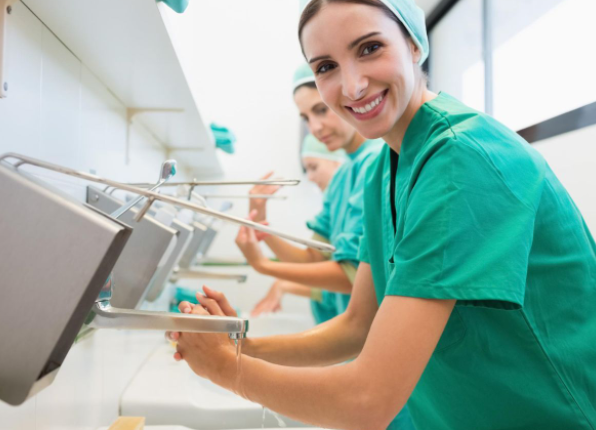Proper personal cleanliness is one of the most common techniques to keep up your regular fitness and overall well-being. Personal hygiene ensures that you keep yourself clean, which will enhance your self-assurance and improve your interactions whilst also lowering your hazard of disorder and negative clinical conditions due to terrible hygiene. Purchase your scrubs by looking up scrubs for doctors UK, they’ll give you a quick solution to solve the problem of attire for you.
What Is Personal Hygiene, And Why Is It So Important?
Personal hygiene is described as the way you contend with your body. It consists of taking baths, brushing your teeth, washing your clothes, and keeping yourself smooth and so forth. And so on. Your body is constantly attacked by germs, viruses, and micro-organisms. These can enter your body through dirty parts of your body and make you ill. Basic personal cleanliness can lower your danger of being attacked by external microorganisms. Personal cleanliness is very essential when it comes to a strong and mighty immune system.
Hand Washing:
Most diseases, particularly colds and gastroenteritis, are contracted as we put our dirty hands that contain germs in our mouths. Some illnesses are transmitted when other people’s unclean hands come into contact with the food we consume. Hands and wrists ought to be cleansed with clean soap and water, preferably with a brush if your fingernails are unclean. Dry your hands using clean materials, like paper towels or hot air dryers.
Toilet Hygiene:
Wash your hands after the use of the toilet, like seriously. Wash with soap for 20 to 30 seconds, being sure that you scrub among your hands, the back of your hands, and beneath your nails. Rinse with warm water, then dry with a towel. If you do not have heat water or cleaning soap, you could use an alcohol-based hand sanitiser as an alternative. Use one which includes at least 60% alcohol.
Appropriate Attire:
Choosing appropriate apparel is critical for doctors in preserving personal hygiene. Clean, professional, & well-fitted uniforms not only add to a professional style but also help to avoid the spread of pollutants. Uniforms must be laundered on an ongoing schedule, and disposable aprons should be used as needed.
Dental Hygiene:
There’s more to good dental hygiene beyond just having beautiful white teeth. Care for the health of your gums and teeth is an effective approach to avoid gum disease and cavities. Brush twice a day for two minutes. Brush after waking up and before going to sleep. If possible, brush after each meal. Floss on your teeth every day, and consult your dentist concerning using an antimicrobial mouthwash. These two treatments may assist with avoiding tooth decay by removing spaces wherein bacteria and germs may collect.
Regular Health Screening:
Doctors ought to emphasise their personal health and well-being by scheduling frequent medical exams. Regular check-ups, vaccines, and tests for viral illnesses are essential. Maintaining one’s well-being allows doctors to carry on providing care to their patients while avoiding avoidable health risks.
Respiratory Hygiene:
Doctors must practice respiratory hygiene to prevent the transmission of disgusting germs. Whenever coughing or sneezing, cover your mouth and nose with tissues or your elbow, and take away used tissues as soon as possible.
Sickness Hygiene:
If you’re not doing well, take precautions to avoid spreading germs to individuals. Cover your mouth and nose while sneezing, wipe down shared surfaces using an antibacterial wipe, and avoid mixing utensils or electronics. Also, promptly discard any contaminated tissues.
Body Hygiene:
There are several sweat glands in your body. Bad body smell happens when bacteria from outside the body combine with sweat. Washing your body not only helps to battle odours but also removes toxins from your skin. Bathing every day helps safeguard your skin from external microorganisms. It will also lower the risk of skin irritation. Scrubbing your body also gets rid of dead skin cells, resulting in smoother, and more radiant skin.
Also Read: Rubmd OKC: The Future of Healthcare.
Avoid Excessive Jewelry:
While personal adornments could be a matter of choice, doctors ought to use caution when wearing heavy jewellery, which can harbour germs and compromise good hand hygiene. Minimal, easy-to-clean jewellery is suggested.
Regular Immunisations:
Considering their greater susceptibility to various infections, doctors have to remain up to speed on their immunisation schedule. That not only safeguards the doctor but also keeps them from spreading vaccine-preventable infections.
Final Words
Maintaining exceptional personal hygiene in the medical profession is more than just a matter of looking; it is an ethical responsibility which has a direct impact on patient safety and well-being. Doctors that follow strict cleanliness procedures not only establish a safe hospital setting but also establish a high standard for competence and commitment to patient care. As the healthcare landscape changes, prioritising one’s hygiene is a guiding principle which adds to the medical profession’s overall integrity.
Thanks for visit: dropship insight.

